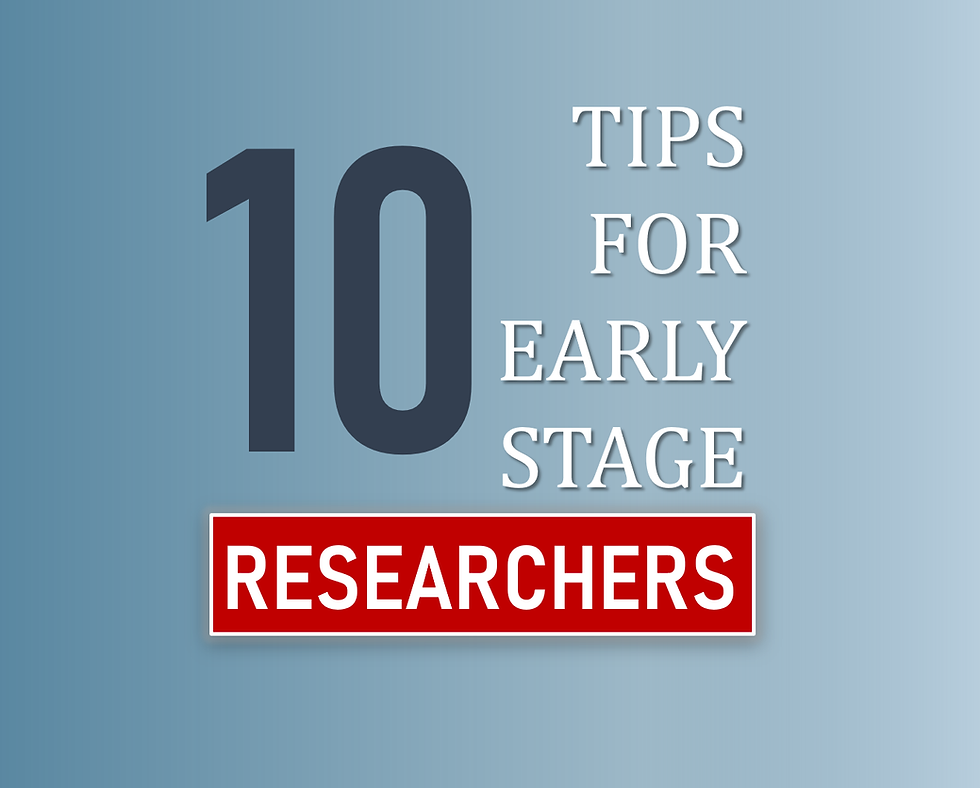Tips for Early Stage Researchers
- Chemojo

- Dec 22, 2022
- 2 min read
Research is an important part of many fields, and researchers play a crucial role in advancing knowledge and understanding in their areas of expertise.
Who are researchers?
They are individuals who engage in research, which is defined as a systematic investigation, including research development, testing, and evaluation, designed to increase the stock of knowledge, including knowledge of humans, culture, and society, and the use of this stock of knowledge to devise new applications. Researchers may work in a variety of fields, including the natural sciences, social sciences, and humanities, and may conduct research in academia, industry, or other organizations. They often have advanced degrees in their field, and may work as professors, scientists, or other professionals.

Here are 10 additional tips for early stage researchers:
1.
Learn how to effectively communicate your research. Being able to clearly and concisely explain your research to others is an important skill to have as a researcher.
2.
Network with other researchers in your field. Attend conferences, workshops, and other events to meet and connect with other researchers.
3.
Take advantage of available resources and tools. Many universities and research institutions have libraries, databases, and other resources that can help you with your research.
4.
Collaborate with other researchers. Working with others can help you gain new insights and perspectives, and it can also help you build your professional network.
5.
Learn how to write clearly and effectively. Good writing skills are essential for success in research, and being able to write clearly and concisely will help you communicate your ideas and findings to others.
6.
Learn how to use statistical software and tools. Many research projects involve analyzing data, and having a good understanding of statistical software and tools can be very helpful.
7.
Get involved in the research community. Participate in research groups, attend conferences and workshops, and join professional organizations in your field.
8.
Learn how to effectively manage your time. Research can be time-consuming, so it's important to be able to manage your time effectively and stay on track.
9.
Seek feedback and critique from others. Getting feedback from others can help you improve your research and identify areas for improvement.
10.
Keep an open mind and be willing to learn. Research is all about asking questions and seeking answers, and this often requires being open to new ideas and approaches.
I hope these additional tips are helpful! Do you have any specific questions about your research or the research process?
Thankyou!













Comments